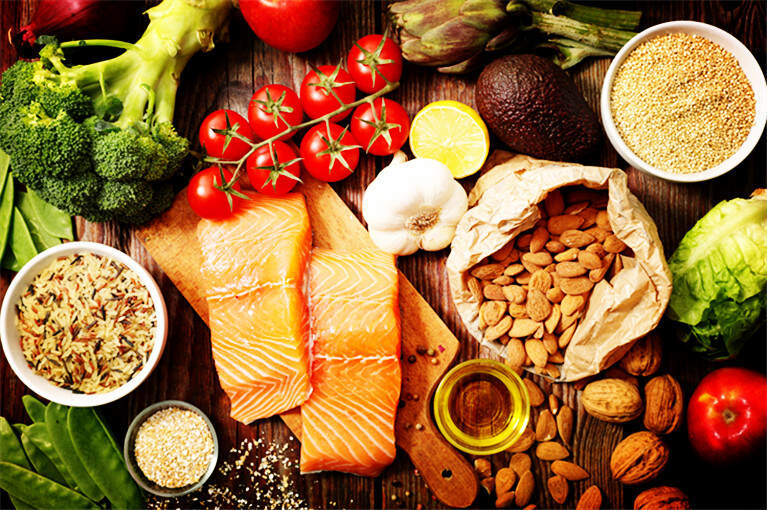
The market size for natural food preservatives is anticipated to develop at a compound annual growth rate of 7% from 2022 to 2032, from a projected valuation of USD 435.2 million in 2022 to USD 856.1 million by 2032.
Increased demand for convenience items, along with an emphasis on organic food products, has resulted in a growing preference for long-lasting foods. As a result, natural food preservatives have become more popular than ever. Natural food preservative sales are expected to grow from 484.2 million US dollars at the end of 2018 to 796.5 million US dollars by 2028. The rapidly expanding consumption of packaged and processed goods is a crucial driver of revenue growth for the global firm.
People’s eating habits have changed as a result of urbanisation and fast-paced lifestyles, which make packaged and ready-to-eat foods more available. To enhance shelf life and prevent disintegration, processed food and beverage commodities must be stored using proper techniques and safe additives. As a result, demand for natural food preservatives is growing.
Because of the negative effects of chemical compounds used in the preparation and processing of food and beverage commodities, the food and beverage industry is changing towards the use of natural food components. Because of the negative health effects of chemical additives, food and beverage companies are switching from synthetic to safer, natural food preservatives. The tough laws against the use of synthetic food additives established by governments around the world have also resulted in a prohibition on synthetic food preservatives in the F&B industry. This is yet another important factor driving the global growth of the natural food preservatives market.
Natural Food Preservatives Market Not Devoid of Challenges; Manufacturers Struggle to Contain Costs and Battle Latest and More Advanced Food Preservation Technologies
Although using natural food preservatives is beneficial for the general public’s health, the cost can be a major obstacle to the market’s long-term growth. Natural food preservatives are more expensive than synthetic alternatives since they require greater processing and production expenditures. Many mid-sized and small F&B industry companies limit their production to the use of synthetic and chemical-based preservatives due to cost reasons. The necessity for producers of packaged and processed foods to keep manufacturing costs in check is a significant revenue growth restraint in the global market for natural food preservatives.
Raw material pricing is another revenue puller. Natural food preservatives obtained from vegetables, fruits, and certain types of plants are priced according to the availability and production of raw material. Fluctuating prices of raw material impact operational efficiencies in the natural food preservatives market. Impact of unfavourable weather conditions on the availability of raw material further leads to inconsistent output, as most of the natural food preservatives are sourced from plants.
Key Segments
Global Natural Food Preservatives Market – By Source
- Plant
- Animal
- Microbial
- Mineral
Global Natural Food Preservatives Market – By Product Type
- Microbial Derived
- Nisin
- Natamycin
- Rosemary Extract
- Botanical Extracts
- Natural Acids
- Salts
Global Natural Food Preservatives Market – By Form
- Powder/Granules
- Liquid
Global Natural Food Preservatives Market – By End Use
- Bakery
- Confectionery
- Dairy Products
- Yogurt & Sour Cream
- Cheese & Butter
- Soups
- Beverages
- Dairy-based
- Plant-based
- Juices
- Snacks
- Jams & Spreads
- Meat, Fish, & Poultry Products
- Sauces & Dressings
Global Natural Food Preservatives Market – By Region
- North America
- Western Europe
- Eastern Europe
- Latin America
- Asia Pacific excluding Japan
- Japan
- Middle East & Africa
Another challenge being witnessed in the global market for natural food preservatives is the emergence of newer and more advanced food preservation technologies that might render traditional preservation techniques obsolete in the near future. Techniques such as High-pressure Processing (HPP) – a cold pasteurisation technique that increases shelf life of food products and Pulsed Electric Fields (PEF) – a non-thermal technique that protects food from microbial spoilage through electric pulses are fast gaining traction in the natural food preservatives market. Older methods of preserving food using natural plant-derived preservatives is slowly losing significance, and this is expected to restrain revenue growth of the natural food preservatives market to a certain extent.
About Future Market Insights (FMI)
Future Market Insights, Inc. (ESOMAR certified, recipient of the Stevie Award, and a member of the Greater New York Chamber of Commerce) offers profound insights into the driving factors that are boosting demand in the market. FMI stands as the leading global provider of market intelligence, advisory services, consulting, and events for the Packaging, Food and Beverage, Consumer Technology, Healthcare, Industrial, and Chemicals markets. With a vast team of over 400 analysts worldwide, FMI provides global, regional, and local expertise on diverse domains and industry trends across more than 110 countries.
Join us as we commemorate 10 years of delivering trusted market insights. Reflecting on a decade of achievements, we continue to lead with integrity, innovation, and expertise.
Contact Us:
Future Market Insights Inc.
Christiana Corporate, 200 Continental Drive,
Suite 401, Newark, Delaware – 19713, USA
T: +1-347-918-3531
For Sales Enquiries: sales@futuremarketinsights.com
Website: https://www.futuremarketinsights.com
LinkedIn| Twitter| Blogs | YouTube